Abstract: Data-driven models and artificial intelligence have shown great potential for the offshore industry. This session will explore how data is being used to improve engineering practice in the offshore energy sector, and how the blending of data science approaches with traditional engineering is guiding industry application and academic research. Opening remarks from a number of guest speakers will be followed by a panel discussion to examine the state of the art and explore future trends.
Format: The session will be organised as follows:
- Opening remarks @ 5 mins (Phil Watson, Director of TIDE)
- Individual speakers @ 7 x 7 mins each, with questions saved for panel discussion.
- Panel discussion of around 30 mins
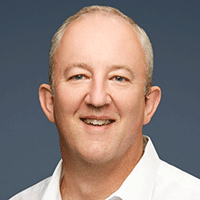
Session Chair
Phil Watson
University of Western Australia
Phil Watson is the Shell Professor of Offshore Engineering and Director of the ARC Industrial Transformation Research Hub on Transforming offshore Infrastructure through Digital Engineering (TIDE) at the University of Western Australia. He is a Fellow of The Australian Academy of Technology and Engineering and the Institution of Engineers Australia, and the current Chair of ISSMGE Technical Committee 209 'Offshore Geotechnics'. Phil is passionate about aligning industry and academia to solve challenges facing the offshore sector – and training tomorrows generation of geotechnical leaders.
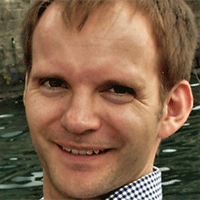
Panelist
Martin Anderson
Fugro
Martin Anderson is a Principal Data Processor with Fugro and holds a degree in computer science from the University of Edinburgh, he has over 15 years of experience analysing offshore and subsea data to produce engineering products. He has helped to develop Fugro's solutions to some of the key challenges in subsea survey including registration of subsea data, pipeline out of straightness surveys and integrating subsea photogrammetry to supplement sonar and laser surveys. Martin is Fugro's technical point of contact for its pipeline processing suite - Sense Pipelines - which leverages cloud processing and point cloud classification to efficiently produce pipeline engineering deliverables and make them more accessible.
Presentation Title: The evolution of point cloud processing from gate filters to PointCNN
Point cloud classification is an important part of the survey workflow to identify the position and orientation of subsea assets from raw sensor data. This presentation explores how Fugro is using machine learning to improve classification accuracy relative to traditional methods. Modern sonar and laser sensors often record billions of points per project therefore scalable cloud computing architectures are discussed to handle these datasets efficiently, in addition to making them more accessible.
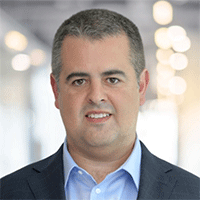
Panelist
Daniel Carneiro
Wood
Daniel Carneiro has 20 years' experience in design and consulting for the energy industry. He’s got his degree, masters, and PhD in Civil Engineering from the Federal University of Rio de Janeiro, and has authored over 30 papers, most of them in subsea pipe-soil interaction. Daniel has joined Wood (then J P Kenny) in Perth, Australia in 2012, moved back to Rio to manage Wood's Consulting business in Brazil from 2017 to 2022, and is since back in Perth. He’s also been a consistent volunteer supporter of OMAE, organising sessions in the Pipeline, Risers, and Subsea Systems Symposium since 2010.
Presentation Title: Data-Driven Engineering and the Role of Domain Expertise
AI is transforming how we interact with data. Our ever-growing data processing capabilities have revolutionized engineering. But is this really new? In the last half-century, multiple advancements have reshaped how we work. Recent progress has enabled researchers and engineers to extract valuable insights from diverse datasets, optimize offshore operations, enhance marine ecosystem monitoring, and develop autonomous systems capable of navigating and exploring the ocean depths. However, domain expertise remains vital for problem framing, model validation, and result interpretation. This presentation will showcase examples illustrate the significant insights data-driven engineering offers while emphasizing the critical role of domain experts in guiding data-based decision-making.
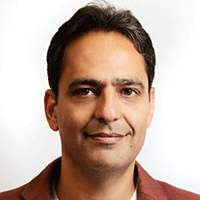
Panelist
Rasoul Hejazi
UWA
Rasoul Hejazi is a dedicated researcher and entrepreneur driven by an unwavering passion for continuous improvement. With ten years of experience in offshore engineering, he has spent the past seven years focused on researching and developing machine learning and AI-based engineering analysis tools. His primary objective is to enhance offshore engineering practices through the creation of innovative frameworks and intelligent analysis tools for integrity management of offshore assets. Recently, Rasoul launched a start-up that aims to further integrate AI and engineering, with a vision to explore new frontiers and contribute to shaping the future of digital engineering.
Presentation Title: Expanding Horizons: Augmented Intelligence in Engineering
This presentation explores the realm of augmented intelligence, where the fusion of human exper/tise, physics-based models, and artificial intelligence (AI) or machine learning (ML) can create a transformational synergy in engineering. By harnessing the potential of AI/ML algorithms, engineers can unlock new possibilities in problem-solving, decision-making, and innovation. The presentation examines the potential and challenges of this dynamic combination, highlighting how it can enhance engineering practices.
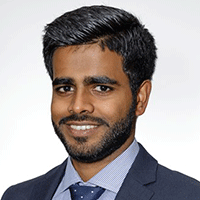
Panelist
Kanishka Jayasinghe
AMOG
Kanishka Jayasinghe is an Associate Director and the Leader of AMOG's Digital Team, focussing on the operationalisation of the hardware and software solutions developed through AMOG's consulting business. Kanishka has a background in ocean engineering with many years of experience in mooring and riser design and analysis, and mooring and riser integrity management. More recently, Kanishka has led the development and product management of AMOG's portfolio of digital products, including its mooring integrity monitoring platform, SMIC, and the SensaWise, LoadWise, and WharfWise suite of smart instrumentation products.
Presentation Title: A scalable Approach to Integrity Monitoring of Floating Facilities
Integrity management for moorings and risers/cables of floating assets (including FOWT) will only become more important as we look towards a future of increased scale, arrays, and unmanned facilities. Design plays an important role, as does inspection, but there is a lot of data that can be gathered from these assets. AMOG has developed the Smart Mooring Integrity Checker (SMIC) technology which is now actively monitoring integrity on a number of floating facilities around the world. Retrofitted, or integrated at the design stage, real-time monitoring solutions can not only improve operability and utilization, but increase safety, and reduce risk.
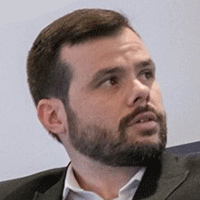
Panelist
Sean Murray
Lloyds Register
Sean Murray leads Lloyd's Register's Pipelines and Risers group, managing and delivering independent assurance for global onshore and offshore pipeline projects. Sean has 15 years of experience in construction and engineering, 13 of which have been in the offshore industry. Sean has developed a strong depth of technical knowledge across a broad range of pipeline engineering aspects and holds a Master’s degree in Civil & Structural Engineering from the University of Dundee. Sean is active in the wider pipelines industry, participating in code committees and presenting at conferences on a range of topics.
Presentation Title: Challenges of Independent Assurance for Digital Twins and Artificial Intelligence in Offshore Engineering
The integration of Digital Twins and AI technologies holds great promise for the offshore industry, offering opportunities to significantly enhance operational efficiency, optimize maintenance strategies, and elevate safety standards. However, alongside these benefits, these technologies present unique challenges that must be addressed to ensure the safety, reliability, and trustworthiness of the systems. This presentation will discuss the challenges faced in providing reliable independent assurance for these technologies in offshore engineering and present an assurance framework to help navigate these challenges.
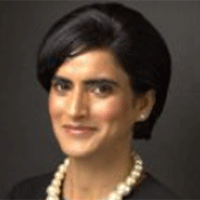
Panelist
Dr. Hema Wadhwa
Worley
Dr Hema Wadhwa, with her diverse range of experiences, possesses a unique perspective and vision that extends beyond the confines of traditional boundaries and silos. She has been particularly influential in enabling people, remote operations, and the power industry through digital solutions and unified operations. She recognizes the transformative potential of digital technologies and leverages them to enhance operational efficiency, optimize performance, and streamline processes. She has a keen understanding of market dynamics and emerging trends, enabling her to develop strategic initiatives that drive business success. One of her current major digital enablement projects is being developed through partnership for industry success.
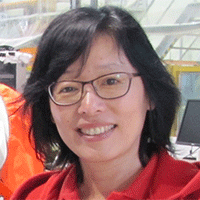
Panelist
Hong Zhang
Griffiths University
Professor Hong Zhang is a Professor of Civil Engineering at Griffith University. With a PhD from The University of Western Australia, she began her career at the Tropical Marine Science Institute in Singapore. Prof Zhang's research focuses primarily on ocean and coastal dynamics, with a particular emphasis on hydrodynamics, sediment transport, and fluid-structure-soil interactions. She possesses a comprehensive understanding of these complex phenomena and utilizes a combination of data-driven and process-based modelling techniques to address research challenges. Prof Zhang maintains close ties with academia, government agencies and local consultancies, ensuring her research findings are relevant and applicable to practical engineering solutions.
Presentation Title: Harnessing the Power of Data: Data Driven Models and Process Based Models in Coastal and Ocean Engineering
In the presentation, the integration of data-driven and process-based models in coastal and ocean engineering is explored. The importance of process-based models, solving equations related to ocean dynamics and sediment transport, is emphasized. Challenges related to data requirements, equation selection, accuracy, and computational power are acknowledged. The presentation highlights the integration of data-driven models and artificial intelligence techniques, utilizing data from various sources. A case study demonstrates how this integration improves the accuracy of process-based models, analyzing the impact of extreme waves on beach erosion for effective coastal protection strategies. The conclusion addresses challenges of handling large data, considering data utilization implications, and fostering national and international collaborations.